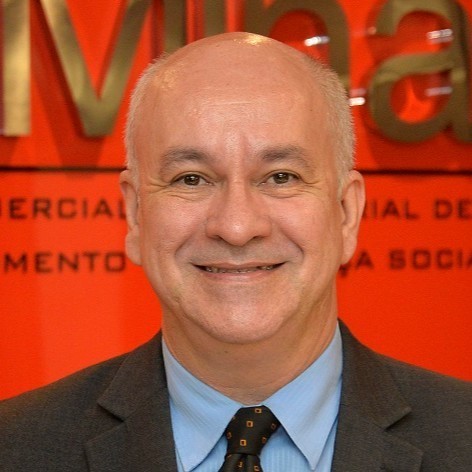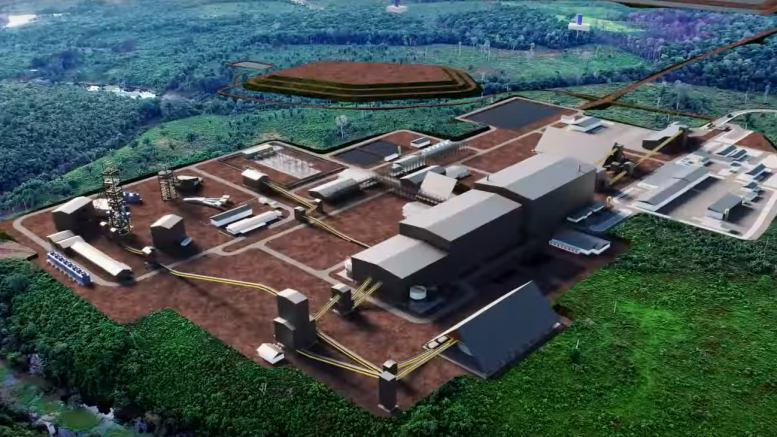“For the implementation of the Potássio Autazes project, an investment of US$ 2.5 billion will be required…”
Adriano Espeschit is the president of Potássio do Brasil and CEO of Nhandu Parkent Mineração and J.Mendo Consultoria Empresarial. Espeschit is president of Brasil Mining Site, with a degree in mining engineering from the Federal University of Minas Gerais.
Potássio do Brasil is a fertilizer company that seeks to operate in the extraction of potassium salts in the subsoil of the State of Amazonas.

Adriano Espeschit, president of Potássio do Brasil
AgriBrasilis – Is it possible to carry out sustainable mining in Autazes?
Adriano Espeschit – Yes. Potássio do Brasil is a company that will operate in the extraction of potassium salts in the subsoil of the State of Amazonas, producing “green potassium” to be used as fertilizer. This will be a product with 80% less carbon footprint, compared to projects in Canada and Russia, for example. The main reason for this is that the Brazilian energy matrix is 84% renewable.
We believe in the sustainable development of the region through partnerships with the community, public agents and non-governmental organizations. For this reason, we follow strict ESG conducts in all our processes.
The entire extraction operation will be done using the method of long chambers and pillars, with low impacts on the surface, within an underground mining project at a depth of 800 meters. The potassium will be removed from the subsoil by high-tech machinery, operated remotely. With the ore, known as sylvinite, brought to the surface, Potassium Chloride (fertilizer) is separated from Sodium Chloride (table salt).
The potassium fertilizer will be distributed to the country by means of transport on barges using an existing route, which will not increase the carbon footprint with the creation of a new route. We will help reduce transport over 10,000 km when imported from Canada or Russia, for example. Sodium Chloride, on the other hand, will be returned to the mine underground in the empty spaces created in the chambers.
AgriBrasilis – Why is Autazes potassium considered a “strategic mineral” for Brazil?
Adriano Espeschit – Certainly, potassium is a strategic mineral for the country and for the world regarding food security and the elimination of hunger on the planet.
According to a United Nations report, about 811 million people went hungry in 2020. Therefore, it is essential to find alternatives that combat hunger. At the same time, we know that agricultural production in the country depends 85% on imported fertilizers. And, in the case of potash, a crucial mineral for fertilizing agricultural crops, the dependence on imported inputs reaches 98%.
AgriBrasilis – How much will be invested in this project? What is the estimated production?
Adriano Espeschit – To date, US$ 230 million has been invested. For the implementation of the Potássio Autazes project, an investment of US$ 2.5 billion will be required. The project’s production capacity is estimated at 2.2 million tonnes of Potassium Chloride per year.
AgriBrasilis – What is the situation of potash exploration in the region? Is there a consensus among the indigenous villages that inhabit the vicinity of the project?
Adriano Espeschit – Potássio do Brasil is awaiting the issuance of the Installation Licenses to start the construction works of the underground mine, the processing plant, the road and the port, as well as other operational support structures. On September 25, 2023, indigenous leaders of the Mura of Autazes people, representing 36 villages and about 12 thousand indigenous people, were at the headquarters of the government of Amazonas to deliver to Governor Wilson Lima a minute and report of the General Assembly, which took place in the municipality, in which there is the decision for the acceptance and implementation of the Potássio Autazes project, which had the declared support of 90% of indigenous of the Mura people.
AgriBrasilis – Why was the license for potash exploration in the Amazon annulled? Are environmentally-related requirements hindering the company’s plans?
Adriano Espeschit – There was no cancellation/annulment of an operating license or the existence of an operating license. As we are in the ongoing environmental licensing process, there is a suspension of the procedure with the state environmental agency, but there is no final decision on the issue.
Our company has already gone through the preliminary license phase and we have already applied for 11 Installation Licenses. After the completion of the works, the company will apply for the Operating License, following Brazilian law. Potássio do Brasil complies with all protocols and issues recommended in the Law. The decisions to suspend environmental licensing (there is no annulment, only a suspension) are based on a mistaken judicial perception, so much so that such decisions have already been suspended twice by the Federal Court in the State of Brasília (TRF1), in the second instance.
AgriBrasilis – How much the extra delay has cost to Potássio do Brasil?
Adriano Espeschit – The costs are foreseen within our planning. However, the biggest cost is for Brazil: every year that we do not advance with the country’s own potash production, we become more dependent on fertilizer imports, which increases the country’s cost to produce food and feed the population. The greatest damage is to the entire Brazilian population, which ironically has the solution within its own country.
AgriBrasilis – Do you believe it will be possible to move the project forward?
Adriano Espeschit – Yes. The Potássio Autazes project plays a key role for Brazil and the world, in terms of food security and reducing national dependence on the purchase of potash fertilizer from abroad. Potássio do Brasil will be able to help Brazilian agribusiness by bringing up to 20% of the supply of potassium chloride. Today, Brazil is the second largest consumer of potash in the world. Our company wants to reduce this dependence, being a key supplier for Brazilian agribusiness.

